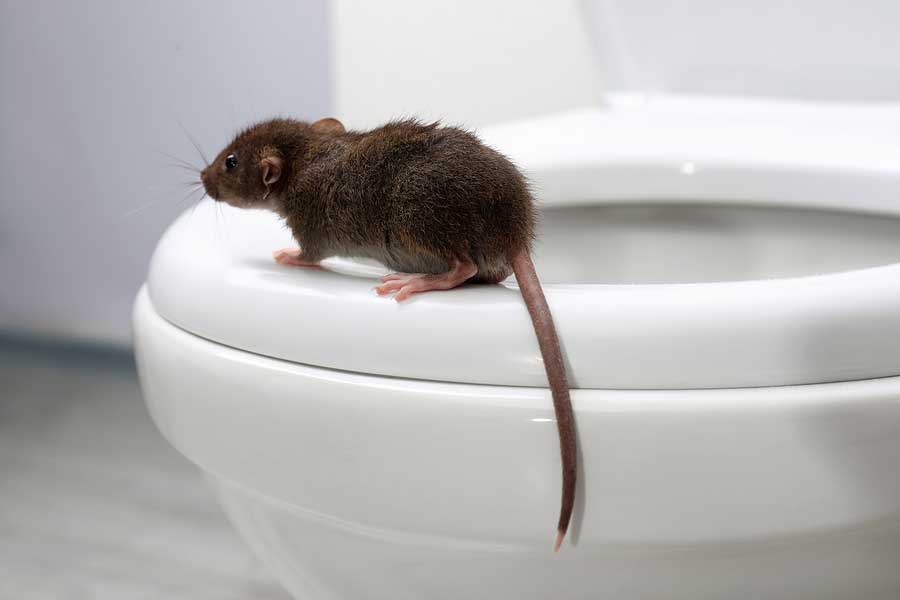Leptospirosis, Choriomeningitis, Typhus. These may sound like Cinderella’s step-sister’s original names, but in fact, they are something way more disturbing. Those are the names of dangerous diseases that have one thing in common. They are transmitted by mice.
What animals can get into your home through the plumbing

How do they get in
Many times pests would seem to crawl out of your pipe when they are actually using a small crack near the entry of the pipe. This is actually the better case for you, as you can quickly seal the entry point. Unfortunately, some pests can enter your home directly through the pipelines.
Most often, pests will find their way through a stack pipe that leads fumes away from your home. The stack pipe is usually warm, especially during winter, so vermin, especially mice, are attracted to it. So, naturally, they go inside and find their way into your home.
The other main entrance is through the sewers. This is the main entry point for pests that can hold their breath for long periods and can’t use small cracks to get in. Such are larger rodents like rats and snakes. Sewer pipes connected to your toilet are even easier, as they have the biggest sewage connection and a relatively small amount of water in the pipe. These vermin transmit the most severe diseases, so people should be extra careful with them.
Signs that you have mice in your plumbing system
There are not many signs you can expect. The best way to find out you have a mice problem in your pipes is by finding their droppings near the pipe entrance. Typically, mice are pretty stealthy when sneaking around, but one thing they don’t care about is cleaning after themselves. So you will usually find some droppings.
Another way to find out you have a problem is by seeing your house pet going crazy around the pipe exit. They may scratch the area, and dogs may even bark at the pipe.
However, the surest way to know you have mice in your pipes is by seeing them getting into your home through them. Not the most pleasant look, but it’s better to know you have unwelcome guests.
How to avoid mice getting in through the plumbing system
Cover up and seal any type of openings.
As you can imagine, the best way to stop rodents from getting inside your home through the plumbing system is by preventing them from entering your pipes in the first place. To achieve this goal, first, you must figure out where is the entry point. After you have found it, you need to close it off with materials that will be harder to chew. Usually, pipe entrances have rodent-resistant caps that are tough enough to endure the relentless chewing from the mice and rats. Still, these caps have a lifetime, and you must ensure they are still intact.
Moreover, you need to check and seal any cracks near the pipeline output. Mice are very agile and don’t need much space to squeeze into your home. Take a particular interest in the pipes leading to your kitchen, as that’s where mice are most likely to attack.
Fix leaks
Along with food, mice also look for a constant supply of water. So, having pipe leaks is a Godsend for them, as they don’t have to risk their lives to get some water. So, it’s in your best interest to always stay on top of any leaks and fix them as soon as you’ve noticed them.
Clean drains
Just like the civil service office keeps public sewers disinfected and clean, so should you with your own sewage pipes. Keeping your drains clean, however, doesn’t necessarily mean you need to pour chemicals and hard cleaners. Usually, it’s enough to run some hot water down the drain, then remove the protective cap and scrub the inside with a pipe brush.
Prune the trees
Remove hiding places
When the problem is at hand
This article is published by Ultimate Home Improvement blog uk



